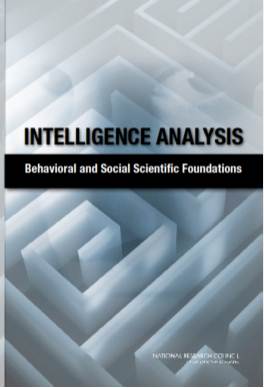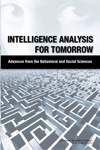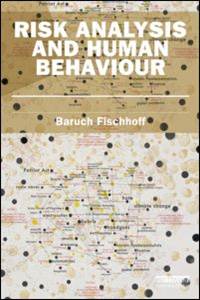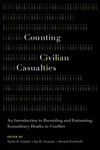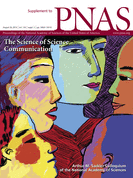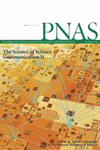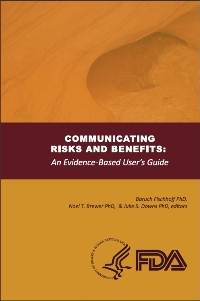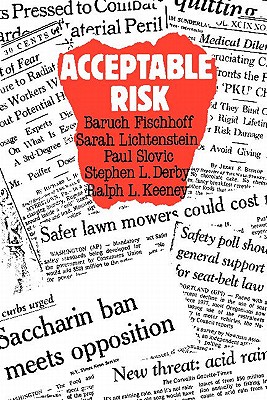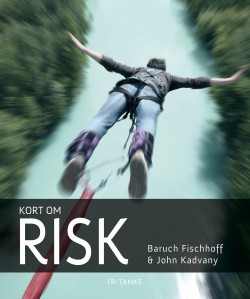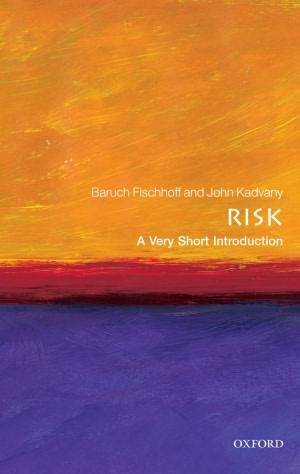
Baruch Fischhoff
Howard Heinz University Professor
Engineering and Public Policy
Carnegie Mellon Institute for Strategy & Technology
- Posner 385B
- 412-268-3246
Department of Engineering and Public Policy
Carnegie Mellon University
5000 Forbes Avenue
Pittsburgh, PA 15213
Bio
- Carnegie Mellon 1987-
Baruch Fischhoff, Ph.D., is the Howard Heinz University Professor in the Department Engineering and Public Policy and the Carnegie Mellon Institute for Strategy & Technology (CMIST) at Carnegie Mellon University. A graduate of the Detroit Public Schools, he holds a BS in mathematics and psychology from Wayne State University and an MA and PhD in psychology from the Hebrew University of Jerusalem. He is a member of the National Academy of Sciences and of the National Academy of Medicine. He is past President of the Society for Judgment and Decision Making and of the Society for Risk Analysis, and recipient of its Distinguished Achievement Award. He was founding chair of the Food and Drug Administration Risk Communication Advisory Committee and chaired the National Research Council Committee on Behavioral and Social Science Research to Improve Intelligence Analysis for National Security and co-chaired the National Research Council Committee on Future Research Goals and Directions for Foundational Science in Cybersecurity and three National Academy of Sciences Colloquia on “The Science of Science Communication.” He is a former member of the Eugene, Oregon Commission on the Rights of Women, Department of Homeland Security's Science and Technology Advisory Committee, the World Federation of Scientists Permanent Monitoring Panel on Terrorism, and the Environmental Protection Agency Science Advisory Board, where he chaired the Homeland Security Advisory Committee. He is a Fellow of the American Association for the Advancement of Science (AAAS), American Psychological Association (APA), the Association for Psychological Science, the Society of Experimental Psychologists, and the Society for Risk Analysis. He has received APA’s Award for Distinguished Service to Psychology, an honorary Doctorate of Humanities from Lund University, an Andrew Carnegie Fellowship, and Carnegie Mellon's Ryan Award for Teaching, and the College of Engineering Outstanding Mentor Award. He has co-authored or edited, Acceptable Risk (1981), A Two-State Solution in the Middle East: Prospects and Possibilities (1993), Elicitation of Preferences (2000), Risk Communication: A Mental Models Approach (2002), Intelligence Analysis: Behavioral and Social Science Foundations (2011), Risk: A Very Short Introduction (2011), Communicating Risks and Benefits: An Evidence-Based Guide (2011), Judgment and Decision Making (2011), Risk Analysis and Human Behavior (2011), The Science of Science Communication I (2013), II (2014), and III (2019), and Counting Civilian Casualties (2013).
Education
- Ph.D. (Psychology) 1975, The Hebrew University, Jerusalem, Israel
- M.A. (Psychology) 1972, The Hebrew University, Jerusalem, Israel
- B.Sc. (Mathematics, Psychology) 1967, Wayne State University
Lectures
Rachel Carson Distinguished Lecture, February 2024
Anastasi Lecture Series, Fordham University
Clarendon Lectures in Management, University of Oxford, April 18-20, 2023
Selected Publications
In Press
Dunning, R., Fischhoff, B., & Davis, A.L. (in press). When do humans heed AI agents’ advice? When should they? Human Factors. https://doi.org/10.
Kenny, R., Fischhoff, B., Davis, A.L., Carley, K.M., & Canfield, C. (in press). Duped by bots: Why some are better than others at detecting fake social media. Human Factors. https://doi.org/10.1177/00187208211072642
Kenny, R., Fischhoff, Davis, A.L., and Canfield, C. (in press). Improving social bot detection through aid and training. Human Factors. https://doi.org/10.
2023
COVID Crisis Group. (2023). Lessons from the COVID War: An investigative report. New York: Public Affairs. One of 35 members. Philip Zelikow, lead author. https://www.hachettebookgroup.com/titles/covid-crisis-group/lessons-from-the-covid-war/9781541703803/?lens=publicaffairs
Fischhoff, B., Cetron, M., & Jetelina, K. (2023). Do masks work? Randomized controlled trials are the worst way to answer the question. STAT. https://www.
Fischhoff, B., Woloshin, S., Krishnamurti, T., & Dewitt, B. (2023). Patients may finally receive practical information about prescriptions – if the FDA doesn’t blow it. STAT. https://www.
Grayek, E., Krishnamurti, T., Davis, A.L., Hu, L., Babich, O., Warren, K., & Fischhoff, B. (2023). Collection and analysis of adherence information for software as a medical device clinical trials: A systematic review. JMIR mHealth and uHealth, 11:e46237. https://mhealth.
Haward, M.F., Lorenz, J.M., Janvier, A., & Fischhoff, B. (2023). Antenatal consultation and deliberation: Adapting to patients’ preferences. Journal of Perinatology. https://doi.org/10.1038/s41372-023-01605-8
Kleeman, H., Fischhoff, B., & Armanios, D.E. (2023). Effects of redesigning the communication of low-income residential energy efficiency programs in the U.S. Energy Policy, 178, 113568. https://doi.org/10.
Morgan, K., & Fischhoff, B. (2023). Mental models for scientists communicating with the public. Issues in Science and Technology 39(2), 58-61. https://issues.org/mental-models-scientists-risk-communication-morgan-fischhoff/
Rodriguez, V.L., Fischhoff, B., & Davis, A.L. (2023). Risk heatmaps as visual displays: Opening movie studios after the COVID-19 shutdown. Risk Analysis, 43, 1356-1359. https://
Woloshin, S., Yang, Y., & Fischhoff, B. (2023). Communicating health information with visual displays: An illustrated design guide. Nature Medicine. https://www.nature.
2022
Drummond Otten, C., & Fischhoff, B. (2022). Calibration of scientific reasoning ability. Journal of Behavioral Decision Making. https://onlinelibrary.wiley.com/doi/10.1002/bdm.2306
Grayek, E.N., Fischhoff, B., Davis, A.L., & Krishnamurti, T. (2022). The value of adherence information during clinical pharmaceutical trials. Clinical Trials, 19(3), 326-336. https://doi.org/10.1177/17407745221084127
Grayek, E., Yang, Y., Fischhoff, B., Schifferdecker, K.E., Woloshin, S., Kerlikowski, K., Miglioretti, D., & Tosteson, A. (2022). A procedure for eliciting women’s preferences for breast cancer screening frequency. Medical Decision Making, 42(6), 783-794. https://doi.org/10.1177/0272989X211073
Greenberg, M., & Lowrie, K. (2022). Baruch Fischhoff: Creating, testing, and communicating theories about risk perception, public preferences, and communication. Risk Analysis, 42, 1895-1899. https://doi.org/10.1111/risa.13996.
Woloshin, S., Dewitt, B., Krishnamurti, T., & Fischhoff, B. (2022). Assessing how consumers interpret and act on results from at-home COVID-19 self-test kits: A randomized clinical trial. JAMA Internal Medicine, 182(3), 332-341. https://jamanetwork.com/journals/jamainternalmedicine/fullarticle/2788656
2021
Drummond, C., & Fischhoff, B. (2021). Assessing broader impacts of funded research: The United States National Science Foundation vs. Rep. Lamar Smith. Science and Public Policy. DOI: https://doi.org/10.1093/scipol/scab082
Fischhoff, B. (2021). The COVID communication breakdown. Foreign Affairs. https://www.foreignaffairs.com/articles/united-states/2021-10-04/covid-communication-breakdown
Fischhoff, B. (2021). Making behavioral science integral to climate science and action. Behavioural Public Policy, 5(4) 439-453. https://www.doi.org/10.1017/bpp.2020.38
Fischhoff, B., Dewitt, B., Sahlin, N-E., & Davis, A.L. (2021). A secure procedure for early career scientists to report apparent misconduct. Life Sciences, Society and Policy. doi: 10.1186/s40504-020-00110-6 [https://rdcu.be/cd838]
Fischhoff, B., Gamble, V.N., & Shoch-Spana, M. (2021). Understanding and communicating about COVID-19 vaccine efficacy, effectiveness, and equity. Washington, DC: National Academy Press. https://www.nap.edu/26154
Garfin, D.R., Fischhoff, B., Holman, E.A., & Silver, R.C. (2021). Risk perceptions and health behaviors as COVID-19 in the United States: Results from a probability-based nationally representative sample. Journal of Experimental Psychology: Applied, 27, 584-598. doi: 10.1037/xap0000374
Haward, M.F., Lorenz, J.M., Janvier, A., & Fischhoff, B. (2021). Bereaved parents’ insights for the antenatal consultation. American Journal of Perinatology. https://doi.org/10.1055/s-0041-1731651
Mohan, D., Chang, C.-C., Fischhoff, B., Rosengart, M.R., Angus, D.C., Yealy, D.M., & Barnato, A.E. (2021). Outcome of a digital behavioral intervention to improve trauma triage: analysis of Medicare claims. Journal of Surgical Research, 268, 532-539. https://doi.org/10.1016/j.jss.2021.07.029
2020
Bruine de Bruin, W., Parker, A.M., & Fischhoff, B. (2020). Decision making competence: More than intelligence? Current Directions in Psychological Science, 29(2), 186-192.
Fischhoff, B. (2020). Making decisions in a COVID-19 world. JAMA, 323(22). doi:10.1001/jama.2020.10178
Fischhoff, B. (2020). The microbiomes of gut-level decisions. CQ (Critical Quarterly), 62(1), 30--37. doi.org/10.1111/criq.12525
Fischhoff, B., & Broomell, S.B. (2020). Judgment and decision making. Annual Review of Psychology, 71. 331-355. doi: 10.1146/annurev-psych-010419-050747 http://www.annualreviews.org/eprint/KXBRW9TWBZZ9X2TFHJJY/full/10.1146/annurev-psych-010419-050747
NASEM. (2020). Framework for equitable allocation of covid-19 vaccine. Washington, DC: The National Academies Press https://www.nap.edu/25917
NASEM. (2020). Rapid expert consultation on the effectiveness of fabric masks for the COVID-19 pandemic (letter report). R. Besser & B. Fischhoff, authors. Washington, DC: National Academy Press. https://www.nap.edu/25776
Soares-Weiser, K., Lasserson, T., Jorgensen, K.J., Woloshin, S., Bero, L., Brown, B., & Fischhoff, B. (2020). Policy makers must act on incomplete evidence in responding to COVID-19 (Editorial). Cochrane Database of Systematic Reviews, (11), ED000149 https://doi.org/10.1002/14651858.ED000149
World Health Organization. (2020). The importance of testing messages. Fiona Fleck interviews Baruch Fischhoff. Bulletin of the World Health Organization, 98, 516-517.
2019
Arnold, J., Davis, A.L., Fischhoff, B., ...., & Hanmer, J.Z. (2019). Comparing the predictive ability of a commercial artificial intelligence early warning system with physician judgment for clinical deterioration in hospitalized general internal medicine patients, a prospective observational study. BMJ Open, 9, e032187. doi:10.1136/bmjopen-2019-03218
Canfield, C., Fischhoff, B., & Davis, A.L. (2019). Better beware: Comparing metacognition for phishing and legitimate emails. Metacognition and Learning, 14(3), 343-362. doi:10.1007/s11409-019-09197-5
Dewitt, D., Fischhoff, B., Davis, A.L., Broomell, S.B., Roberts, M., Hanmer, J. (2019). Exclusion criteria as measurements I: Identifying invalid responses. Medical Decision Making, 39(6), 693-703. doi: 10.1177/0272989X19856617
Dewitt, D., Fischhoff, B., Davis, A.L., Broomell, S.B., Roberts, M., Hanmer, J. (2019). Exclusion criteria as measurements II: Effects on utility curves. Medical Decision Making, 39(6), 704-716. soe: 10.1177/0272989X19862542
Dewitt, B., Fischhoff, B., & Sahlin, N-E. (2019). “Moral machine” experiment is no basis for policy making (Correspondence). Nature, 567, 31.https://www.nature.com/articles/d41586-019-00766-x
Fischhoff, B., & Barnato, A.E. (2019). Value awareness: A goal for end-of-life decision making. Medical Decision Making Policy and Practice. doi: 10.1177/2381468318817523
Fischhoff, B. (2019). Evaluating science communication. PNAS, 116(16), 7670-7675. www.pnas.org/cgi/doi/10.1073/pnas.1805863115
Fischhoff, B. (2019). Tough calls. Scientific American, 321(3), 74-79. https://www.scientificamerican.com/article/when-assessing-novel-risks-facts-are-not-enough
Kulkarni, S., Dewitt, B., Fischhoff, B., Rosengart, M.R., Angus, D.C., Saul, M., Yealy, D.M., & Mohan, D. (2019). Defining the representativeness heuristic in trauma triage: a retrospective observational cohort study. PLOSOne 14(2): e0212201. https://doi.org/10.1371/journal.pone.0212201
Yang, Y., Wong-Parodi, G., & Fischhoff. (2019). "How Stable Are Preferences among Emerging Electricity Generation Technologies." Environmental Research Communications, 1(7). https://iopscience.iop.org/article/10.1088/2515-7620/ab2ec0
Yu, M., Krishnamurti, T., & Fischhoff, B. (2019). Implementing a new Common Rule requirement for informed consent: A randomized trial on adult asthma patients. Medical Decision Making Policy and Practice. doi: 10.1177/2381468319839315
2018
Canfield, C., & Fischhoff, B. (2018). Setting priorities for behavioral interventions: An application to reducing phishing risks. Risk Analysis, 38(4),826-838. doi: 10.1111/risa.12917
Fischhoff, B., Wong-Parodi, G., Garfin, D., Holman, E.A., & Silver, R. (2018). Public understanding of Ebola risks: Mastering an unfamiliar threat. Risk Analysis, 38(1), 71-83. doi: 10.1111/risa.12794
Mohan, D., Fischhoff, B., Angus, D.C., Rosengart, M.R., Wallace, D.J., Yealy, D.M., Farris, C., Chang, C.-C.H., Kerti, S., & Barnato, A.E. (2018). Serious video games may improve physicians’ heuristics in trauma triage. PNAS, 115(37), 9204-9209. https://doi.org/10.1073/pnas.1805450115.
Parker, A.M., Bruine de Bruin, W., Fischhoff, B., & Weller, J. (2018). Robustness of decision-making competence: Evidence from two measures and an 11-year longitudinal study. Journal of Behavioral Decision Making, 31, 380-391. doi: 10.1002/bdm.2059
2017
Atran, S., Axelrod, R., Davis, R., & Fischhoff, B. (2017). Challenges in researching terrorism from the field. Science, 355(6323), 352-354. doi: 10.1126/science.aaj2037
Bruine de Bruin, A., & Fischhoff, B. (2017). Eliciting probabilistic expectations: Collaborations between psychologists and economists. PNAS, 114(13), 3297-3304. doi/10.1073/pnas.1615461114
Canfield, C., Davis, A.L., Fischhoff, B., Forget, A., Pearman, S., & Thomas, J. (2017). Replication: Challenges in using data logs to validate phishing detection ability metrics. Symposium on Usable Privacy and Security (SOUPS) 2017. https://www.usenix.org/conference/soups2017/technical-sessions/presentation/canfield
Dewitt, B., Fischhoff, B., Davis, A.L., & Hanmer, J. (2017). An approach to reconciling competing ethical principles in aggregating heterogeneous health preferences. Medical Decision Making, 37, 647-656. doi: 10.1177/0272989X17696999
Drummond, C., & Fischhoff, B. (2017). Individuals with greater science literacy and education have more polarized beliefs on controversial science topics. PNAS, 114, 9587-9592. doi:10.1073/pnas.1704882114
Drummond, C., & Fischhoff, B. (2017). Development and validation of the Scientific Reasoning Scale. Journal of Behavioral Decision Making 30(1), 26-38. doi: 10.1002/bdm.1906
Fischhoff, B. (2017). Breaking ground for psychological science: The U.S. Food and Drug Administration. American Psychologist, 72(2). 118-125. doi.org/10.1037/a0040438
Haward, M., Janvier, A., Lorenz, J.M., & Fischhoff, B. (2017). Counseling parents at risk of delivery of an extremely premature infant: Differing strategies. American Journal of Bioethics – Empirical Methods,8(4), 243-252. doi: 10.1080/23294515.2017.1394399
Klein, O., Hegarty, P., & Fischhoff, B. (2017). Hindsight forty years on. Memory Studies, 10(3), 249-260.
Krishnamurti, T., Davis, A.L., Wong-Parodi, G., Fischhoff, B., Sadovsky, Y., & Simhan, H. (2017). MyHealthyPregnancy: A feasibility pilot of a behavioral decision research-based tool for assessing and communicating pregnancy risk. JMIR mHealth uHealth, 5(4), e 42. doi:10.2196/mhealth.7036
Mohan, D., Farris, C., Fischhoff, B., Rosengart, M.R., et al.. (2017). Testing the efficacy of a video game vs. a traditional education program at improving physician decision making in trauma triage: a randomized controlled trial. BMJ, 359, j5416. doi: MJ2017;359:j5416
2016
Canfield, C., Fischhoff, B., & Davis, A.L. (2016). Quantifying phishing susceptibility for detection and behavior decisions. Human Factors, 58(8), 1158-1172. doi: 10.1177/0018720816665025
Wong-Parodi, G., Krishnamurti, T., Davis, A.L., Schwartz, D., & Fischhoff, B. (2016). Integrating social science in climate and energy solutions: A decision science approach. Nature Climate Change, 6, 563-569. doi: 10.1038/NCLIMATE2917
2015
Dewitt, B., Fischhoff, B., Davis, A.L., & Broomell, S. (2015). Environmental risk perception from visual cues: Caution and sensitivity in evaluating tornado risks. Environmental Research Letters, 10, 124009. doi:10.1088/1748-9326/10/12/124009
Fischhoff, B. (2015). The realities of risk-cost-benefit analysis. Science, 350(6260), 527. http://dx.doi.org/10.1126/science.aaa6516.
Fischhoff, B. (2015). Risk perception and communication. In R. Detels, M. Gulliford, Karim, Q.A., & Tan, C.C. (eds.), Oxford Textbook of Public Health, Sixth Edition (7.5). Oxford: Oxford University Press. doi: 10.1093/med/9780199661756.003.0138
Krishnamurti, T., Woloshin, S., Schwartz, L.M., & Fischhoff, B. (2015). A randomized trial testing FDA "breakthrough" language. JAMA Internal Medicine. https://doi.org/10.1001/jamainternmed.2015.5355
Wong-Parodi, G., & Fischhoff, B. (2015). The impacts of political cues and practical information on climate change decisions. Environmental Research Letters, 10. doi:10.1088/1748-9326/10/3/034004.
2014
Davis, A.L., & Fischhoff, B. (2014). Communicating uncertain experimental evidence. Journal of Experimental Psychology: Learning, Memory, and Cognition, 40, 261-274.s
Fischhoff, B., & Davis, A.L. (2014). Communicating scientific uncertainty. Proceedings of the National Academy of Sciences, 111 (Supplement 4), 13664-13671.
Mohan, D., Fischhoff, B., Farris, C., Switzer, G.E., et al. (2014). Validating a vignette-based instrument to study physician decision making in trauma triage. Medical Decision Making, 32, 242-252.
Wong-Parodi, G., Fischhoff, B., & Strauss, B. (2014). A method to evaluate the usability of interactive climate change impact decision aids. Climatic Change, 126, 485-493. https://link.springer.com/article/10.1007/s10584-014-1226-9
2013
Davis, A.L., Krishnamurti, T., Fischhoff, B., & Bruine de Bruin, W. (2013). Setting a standard for electricity pilot studies. Energy Policy, 62, 401-409. https://doi.org/10.1016/j.enpol.2013.07.093
Fischhoff, B. (2013). The sciences of science communication. PNAS, 110 (Supplement 3), 14033-14039. doi/10.1073/pnas.1213273110
Halpern, B.S., Longo, C., McLeod, K.L., Cooke, R., Fischhoff, B., Samhouri, J.F., & Scarborough. (2013). Elicited preferences for components of ocean health in the California Current. Marine Policy, 42(1), 68-73. https://doi.org/10.1016/j.marpol.2013.01.019
Kadane, J.B., & Fischhoff, B. (2013). A cautionary note on global recalibration. Judgment and Decision Making, 8(1), 25-28.
Krishnamurti, T., & Fischhoff, B. (2013, May 22). Teenagers can handle Plan B. Pittsburgh Post Gazette.
Schwartz, D., Fischhoff, B., Krishnamurti, T., & Sowell, F. (2013). The Hawthorne Effect and energy awareness. PNAS, 110(38), 15242-15246. doi/10.1073/pnas.1301687110
2012
Farris, C. & Fischhoff, B. (2012). A decision science informed approach to sexual risk and non-consent. Clinical and Translational Science, 5, 482-485.
Fischhoff, B. (2012, Summer). Communicating uncertainty: Fulfilling the duty to inform. Issues in Science and Technology, 29, 63-70.
Fischhoff, B. (2012). Good decisions require good communication. Drug Safety, 35, 983-993.
Fischhoff, B. (2012). Robyn Mason Dawes (1936-2010). American Psychologist, 67, 319-320.
Fischhoff, B., & Eggers, S. (2012). Questions of competence: The duty to inform and the limits to choice. In E. Shafir (ed.), The behavioral foundations of policy (pp. 217-230). Princeton: Princeton University Press.
2011
Fischhoff, B. (2011). Communicating the risks of terrorism (and anything else). American Psychologist, 66, 520-531.
Fischhoff, B., Brewer, N., & Downs, J.S. (eds.). (2011). Communicating risks and benefits: An evidence-based user’s guide. Washington, DC: Food and Drug Administration.
Fischhoff, B., & Chauvin, C. (eds.). (2011). Intelligence analysis: Behavioral and social science foundations. Washington, DC: National Academy Press.
Fischhoff, B., & Kadvany, J. (2011). Risk: A very short introduction. Oxford: Oxford University Press.
Fischhoff, B. (2011). The emotions of the nuclear experts. Bulletin of the Atomic Scientists.
National Research Council. (2011). Intelligence analysis for tomorrow. Washington, DC: Author (Consensus Report).
Pidgeon, N., & Fischhoff, B. (2011). The role of social and decision sciences in communicating uncertain climate risks. Nature Climate Change, 1(1), 35-41.
Silver, R.C., & Fischhoff, B. (2011). What should we expect after the next attack? American Psychologist, 66, 567-572.
2010
Fischhoff, B. (2010). Judgment and decision making. Wily Interdisciplinary Reviews: Cognitive Science. New York: Oxford University Press.
Fischhoff, B., Bruine de Bruin, W., Parker, A.M., Millstein, S.G, & Halpern-Felsher, B.L. (2010). Adolescents' perceived risk of dying. Journal of Adolescent Health, 46(3), 265-269.
Kaptan, G., & Fischhoff, B. (2010). Sticky decisions: Peanut butter in a time of Salmonella. Emerging Infectious Disease, 16, 900-904.
2009
Bruine de Bruin, W., Güvenç, Ü., Fischhoff, B., Armstrong, C.M., & Caruso, D. (2009). Communicating about xenotransplanation: Models and scenarios. Risk Analysis, 29(8), 1105-1115.
Fischhoff, B. (2009, 17 February). The nuclear energy industry's communication problem. Bulletin of the Atomic Scientists.
Fischhoff, B., & Morgan, M.G. (2009). The science and practice of risk ranking. Horizons, 10(3), 40-47.
2008
Casman, E. & Fischhoff, B. (2008). Risk communication planning for the aftermath of a plague bioattack. Risk Analysis, 28(5), 1327-42.
Downs, J. S., Bruine de Bruin, W., & Fischhoff, B. (2008). Parents' vaccination comprehension and decisions. Vaccine, 26, 1595-1607.
Fischhoff, B. (2008). Assessing adolescent decision-making competence. Developmental Review, 28, 12-28.
Fischhoff, B., Atran, S., & Sageman, M. (2008) Mutually Assured Support: A Security Doctrine for Terrorist Nuclear Weapon Threats. In R. Clarke (ed.), Terrorism Briefing for the New President, Annals of the American Academy of Political and Social Science, 618, 160-167.
Krishnamurti, T.P., Eggers, S.L., & Fischhoff, B. (2008). The impact of over-the-counter availability of "Plan B" on teens' contraceptive decision making. Social Science and Medicine, 67, 618-627.
2007
Bruine de Bruin, W., Parker, A., & Fischhoff, B. (2007) Individual Differences in Adult Decision-Making Competence (A-DMC). Journal of Personality and Social Psychology, 92, 938-956.
Fischhoff, B. (2007). Communicating with the public: Before, during, and after emergencies. (in Chinese) China Emergency Management, 16-19.
Fischhoff, B. (2007). Non-Persuasive Communication about Matters of Greatest Urgency: Climate Change. Environmental Science & Technology, 41, 7204-7208.
Fischhoff, B. (2007). An early history of hindsight research. Social Cognition, 25, 10-13.
Fischhoff, B., Atran, S., & Fischhoff, N. (2007). Counting casualties: A framework for respectful, useful records. Journal of Risk and Uncertainty, 34, 1-19.
Florig, K., & Fischhoff, B. (2007). Individuals’ decisions affecting radiation exposure after a nuclear event. Health Physics, 92, 475-483. https://doi.org/10.1097/01.HP.0000255660.33000.a6
National Research Council. (2007). Risk comparisons. Scientific Reviews of the Proposed Risk Assessment Bulletin from the Office of Management and Budget (pp.37-8). Washington, DC: National Academies Press.
Parker, A.M., Bruine de Bruin, W., & Fischhoff. B. (2007). Maximizers vs. satisficers: Decision-making styles, competence and outcomes. Judgment and Decision Making, 2(6), 342-350. https://doi.org/10.1017/S1930297500000486
Apt, J. & Fischhoff, B. (2006). Power and people. Electricity Journal, 19(9), 17-25.
Bruine de Bruin, W., Fischhoff, B., Brilliant, L., & Caruso, D. (2006). Expert judgments of pandemic influenza risks. Global Public Health 1(2), 178-193.
Fischhoff, B. (2006, May). Communication: Getting straight talk right. Harvard Business Review, 8. https://hbr.org/2006/05/preparing-for-a-pandemic#post6
Fischhoff, B. (2006, May). Modeling: Visualizing your vulnerabilities. Harvard Business Review, 8-11. https://hbr.org/2006/05/preparing-for-a-pandemic#post7
Fischhoff, B., Bruine de Bruin, W., Guvenc, U., Caruso, D., & Brilliant, L. (2006). Analyzing disaster risks and plans: An avian flu example. Journal of Risk and Uncertainty, 33, 133-151.
2005
Fischhoff, B. (2005). Cognitive processes in stated preference methods. In K-G. Maler & J. Vincent (Eds.), Handbook of Environmental Economics (pp. 937-968). Amsterdam: Elsevier.
Fischhoff, B. (2005). Decision research strategies. Health Psychology, 21(4), S1-S8.
Fischhoff, B. (2005, August 7). A hero in every aisle seat. New York Times. Retrieved from http://www.nytimes.com/
Fischhoff, B. (2005). Thinking about the indeterminate. Review of R.A. Posner, Catastrophe: Risk and Response, (New York: Oxford University Press). Issues in Science and Technology, 21(4), 82-84.
Fischhoff, B. (2005, October 2). We need the right words to weather the storm. Washington Post. Retrieved from http://www.washingtonpost.com/
Fischhoff, B. (2005), President's columns from the Society for Risk Analysis RISK Newsletter.
Fischhoff, B., Gonzalez, R.M., Lerner, J.S., & Small, D.A. (2005). Evolving judgments of terror risks: Foresight, hindsight, and emotion. Journal of Experimental Psychology: Applied, 11, 124-139. https://doi.org/10.1037/1076-898X.11.2.124
Parker, A. & Fischhoff, B. (2005). Decision-making competence: External validation through an individual-differences approach. Journal of Behavioral Decision Making, 18, 1-27.
2004
Downs, J. S. Murray, P. J., Bruine de Bruin, W., White, J. P., Palmgren, C., & Fischhoff, B. (2004). An interactive video program to reduce adolescent females' STD risk: A randomized controlled trial. Social Science and Medicine, 59, 1561-1572.
Eggers, S.L., & Fischhoff, B. (2004). Setting Policies for Consumer Communications: A Behavioral Decision Research Approach. Journal of Public Policy and Marketing, 23, 14-27.
2003
Gregory, R., Fischhoff, B., Butte, G., & Thorne, S. (2003). A multi-channel stakeholder consultation process for transmission deregulation. Energy Policy, 31, 1291-9.
Fischhoff, B., Gonzalez, R., Small, D., & Lerner, J. (2003). Evaluating the success of terror risk communications. Biosecurity and Bioterrorism: Biodefense Strategy, Practice, and Science, 1(4), 255-258.
Fischhoff, B., & Wesseley, S. (2003). Managing patients with inexplicable health problems. British Medical Journal, 326, 595-597.
2002
Bruine de Bruin, W., Fischbeck, P.S., Stiber, N.A., & Fischhoff, B. (2002). What number is “fifty-fifty”? Distributing excessive 50% responses in elicited probabilities. Risk Analysis, 22, 725-735. https://doi.org/10.1111/0272-4332.00063
Löfstedt, R., Fischhoff, B., & Fischhoff, I. (2002). Precautionary principles: General definitions and specific applications to genetically modified organisms (GMOs). Journal of Policy Analysis and Management, 21, 381-407.
2001
Florig, H.K., Morgan, M.G., Morgan, K.M., Jenni, K.E., Fischhoff, B., Fischbeck, P.S., & DeKay, M. (2001). A deliberative method for ranking risks (1): Overview and test bed development. Risk Analysis, 21, 913-922. https://doi.org/10.1111/0272-4332.215161
Morgan, K.M., DeKay, M.L., Fischbeck, P.S., Morgan, M.G., Fischhoff, B., & Florig, H.K. (2001). A deliberative method for ranking risks (2): Evaluation of validity and agreement among risk managers. Risk Analysis, 21, 923-938. https://doi.org/10.1111/0272-4332.215162
Riley, D.M., Fischhoff, B., Small, M., & Fischbeck, P. (2001). Evaluating the effectiveness of risk-reduction strategies for consumer chemical products. Risk Analysis, 21, 357-369. https://doi.org/10.1111/0272-4332.212117
2000
Fischhoff, B. (2000). Scientific management of science? Policy Sciences, 33, 73-87.
Fischhoff, B., Parker, A., Bruine de Bruin, W., Downs, J., Palmgren, C., Dawes, R.M., & Manski, C. (2000). Teen expectations for significant life events. Public Opinion Quarterly, 64, 189-205.
Long, J., & Fischhoff, B. (2000). Setting risk priorities: A formal model. Risk Analysis, 20, 339-351. https://doi.org/10.1111/0272-4332.203033
Woloshin, S., Schwartz, L.M., Byram, S.J., Sox, H.C., Fischhoff, B., & Welch, H.G. (2000) Women's understanding of the mammography screening debate. Archives of Internal Medicine, 160(10), 1434-40.
1999
Fischhoff, B. (1999). What do patients want? Help in making effective choices. Effective Clinical Practice, 2, 198-200.
Fischhoff, B. (1999). Why (cancer) risk communication can be hard. Journal of the National Cancer Institute Monographs, 25, 7-13. https://doi.org/10.1093/oxfordjournals.jncimonographs.a024213
Fischhoff, B., Welch, N., & Frederick, S. (1999). Construal processes in preference elicitation. Journal of Risk and Uncertainty, 19, 139-164. https://doi.org/10.1023/A:1007823326511
1998
Fischhoff, B., Downs, J., & Bruine de Bruin, W. (1998). Adolescent vulnerability: A framework for behavioral interventions. Applied and Preventive Psychology, 7, 77-94.
Frederick, S. & Fischhoff, B. (1998). Scope insensitivity in elicited values. Risk Decision and Policy, 3, 109-124.
1996
Fischhoff, B. (1996). The real world: What good is it? Organizational Behavior and Human Decision Processes, 65, 232-248.
1995
Fischhoff, B. (1995). Risk perception and communication unplugged: Twenty years of process. Risk Analysis, 15, 137-145.
1994
Bostrom, A., Atman, C.J., Fischhoff, B., & Morgan, M.G. (1994). Evaluating risk communications: Completing and correcting mental models of hazardous processes. Part 2. Risk Analysis, 14, 789-798. https://doi.org/10.1111/j.1539-6924.1994.tb00290.x
Bostrom, A., Morgan, M.G., Fischhoff, B. & Read, D. (1994). What do people know about global climate change? Part 1. Mental models. Risk Analysis, 14, 959-970. https://doi.org/10.1111/j.1539-6924.1994.tb00065.x
Fischhoff, B. (1994). Acceptable risk: A conceptual proposal. Risk: Health, Safety & Environment, 1, 1-28.
Fischhoff, B. (1994). What forecasts (seem to) mean. International Journal of Forecasting, 10, 387-403.
Read, D., Bostrom, A., Morgan, M.G., Fischhoff, B., & Smuts, T. (1994). What do people know about global climate change? Part 2. Survey studies of educated laypeople. Risk Analysis, 14, 971-982. https://doi.org/10.1111/j.1539-6924.1994.tb00066.x
1993
Fischhoff, B. (1993). Transaction analysis: A framework and an application to insurance decisions. Journal of Risk and Uncertainty, 7, 53-69.
Maharik, M., & Fischhoff, B. (1993). Public views of using nuclear energy sources in space missions. Space Policy, 9, 99-108. https://doi.org/10.1016/0265-9646(93)90023-3
Quadrel, M.J., Fischhoff, B., & Davis, W. (1993). Adolescent (in)vulnerability. American Psychologist, 48, 102-116. https://doi.org/10.1037/0003-066X.48.2.102
1992
Bostrom, A., Fischhoff, B., & Morgan, M.G. (1992). Characterizing mental models of hazardous processes: A methodology and an application to radon. Journal of Social Issues, 48(4), 85-100. https://doi.org/10.1111/j.1540-4560.1992.tb01946.x
Fischhoff, B. (1992). Giving advice: Decision theory perspectives on sexual assault. American Psychologist,47(4), 577-588.
1991
Beyth-Marom, R., Fischhoff, B., Quadrel, M.J., & Furby, L. (1991). Teaching adolescents decision making. In J. Baron & R. Brown (Eds.) Teaching decision making to adolescents (pp. 19-60). London, UK: Routledge
Fischhoff, B. (1991). Value elicitation: Is there anything in there? American Psychologist, 46(8), 835-847.
1990
Fischhoff, B. (1990). Psychology and public policy: Tool or tool maker? American Psychologist, 45, 657-663.
Roth, E., Morgan, G., Fischhoff, B., Lave, L., & Bostrom, A. (1990). What do we know about making risk comparisons? Risk Analysis, 10, 375-387. https://doi.org/10.1111/j.1539-6924.1990.tb00520.x
1989
Furby, L., Fischhoff, B., & Morgan, M. (1989). Judged effectiveness of common rape prevention and self-defense strategies. Journal of Interpersonal Violence, 4, 44-64
Fischhoff, B. (1989). Risk: A guide to controversy. Appendix to National Research Council. Improving risk communications (pp. 211-319).Washington, D.C.: National Academy Press.
1988
Blackshaw, L., & Fischhoff, B. (1988). Decision making in online search. Journal of American Society for Information Sciences, 39, 369-389. https://www.learntechlib.org/p/140533/
Fischhoff, B. & Furby, L. (1988). Measuring values: A conceptual framework for interpreting transactions with special reference to contingent valuation of visibility. Journal of Risk and Uncertainty, 1, 147-184
Furby, L., Slovic, P., Fischhoff, B., & Gregory, R. (1988). Public perceptions of electric power transmission lines. Journal of Environmental Psychology, 8(1), 19-43. https://doi.org/10.1016/S0272-4944(88)80021-5
1987
Fischhoff, B., MacGregor, D., & Blackshaw, L. (1987). Creating categories for databases. International Journal of Man-Machine Systems, 27, 33-63.
1986
Henrion, M. & Fischhoff, B. (1986). Assessing uncertainty in physical constants. American Journal of Physics, 54, 791-798
1985
Svenson, O., & Fischhoff, B. (1985). Levels of environmental decisions. Journal of Environmental Psychology, 5, 55-68. https://doi.org/10.1016/S0272-4944(85)80038-4
1984
Fischhoff, B., Watson, S., & Hope, C. (1984). Defining risk. Policy Sciences, 17, 123-139.
Fischhoff, B. (1984). Setting standards: A systematic approach to managing public health and safety risks. Management Science, 30, 823-843.
Fischhoff, B. & Bar-Hillel, M. (1984). Diagnosticity and the base-rate effect. Memory and Cognition, 12, 402-410. https://doi.org/10.3758/bf03198301
Fischhoff, B. & Bar-Hillel, M. (1984). Focusing techniques: A shortcut to improving probability judgments? Organizational Behavior and Human Performance, 34(2), 175-191. https://doi.org/10.1016/0030-5073(84)90002-3
Fischhoff, B., Slovic, P., Page, R.T., & MacLean, D. (1984). Editorial. Nuclear power: Time for detente. Risk Analysis, 4, 153. https://doi.org/10.1111/j.1539-6924.1984.tb00133.x
Slovic, P., Lichtenstein, S., & Fischhoff, B. (1984). Modeling the societal impact of fatal accidents. Management Science, 30, 464-474. https://doi.org/10.1287/mnsc.30.4.464
1983
Fischhoff, B. (1983). Acceptable risk: The case of nuclear power. Journal of Policy Analysis and Management, 2, 559-575.
Fischhoff, B. (1983). Predicting frames. Journal of Experimental Psychology: Learning Memory & Cognition, 9, 113-116.
Fischhoff, B. & Beyth-Marom, R. (1983). Hypothesis evaluation from a Bayesian perspective. Psychological Review, 90, 239-260. https://doi.org/10.1037/0033-295X.90.3.239
Fischhoff, B. & Furby, L. (1983). Psychological dimensions of climatic change. In R. S. Chen, E. Boulding and S. H. Schneider (Eds.), Social science research and climate change (pp. 183-203). Dordrecht, Holland: D. Reidel.
Fischhoff, B. & MacGregor, D. (1983). Judged lethality: How much people seem to know depends upon how they are asked. Risk Analysis, 3, 229-236. https://doi.org/10.1111/j.1539-6924.1983.tb01391.x
1982
Fischhoff, B. (1982). Debiasing. In D. Kahneman, P. Slovic, & A. Tversky (eds.), Judgment under uncertainty: Heuristics and biases (pp. 422-444). New York: Cambridge University Press.
Fischhoff, B., Slovic, P. & Lichtenstein, S. (1982). Lay foibles and expert fables in judgments about risk. American Statistician, 1982, 36, 240-255; https://doi.org/10.2307/2683835
Lichtenstein, S., Fischhoff, B., & Phillips, L.D. (1982). Calibration of probabilities: State of the art to 1980. In D. Kahneman, P. Slovic, & A. Tversky (eds.), Judgment under uncertainty: Heuristics and biases (pp. 306-334). New York: Cambridge University Press
Slovic, P. & Fischhoff, B. (1982). Targeting risks: Comments on Wilde's "Theory of Risk Homeostasis." Risk Analysis, 2, 227-234. https://doi.org/10.1111/j.1539-6924.1982.tb01385.x
Slovic, P., Fischhoff, B. & Lichtenstein, S. (1982). Why study risk perceptions? Risk Analysis, 2, 83-93. https://doi.org/10.1111/j.1539-6924.1982.tb01369.x
1981
Bar-Hillel, M & Fischhoff, B. (1981). When do base rates affect predictions? Journal of Personality and Social Psychology, 41, 671-680. https://doi.org/10.1037/0022-3514.41.4.671
Fischhoff, B. (1981). Hot air: The psychology of CO2-induced climatic change. In J. Harvey (Ed.), Cognition, social behavior and the environment (pp. 163-184). Hillsdale, NJ: Erlbaum.
1980
Fischhoff, B. (1980). Clinical decision analysis. Operations Research, 28, 28-43. https://doi.org/10.1287/opre.28.1.28
Fischhoff, B. (1980). For those condemned to study the past: Reflections on historical judgment. In R. A. Shweder and D. W. Fiske (Eds.), New Directions for Methodology of Social and Behavioral Science, (4) pp. 79-93. San Francisco: Jossey-Bass.
Koriat, A., Lichtenstein, S. & Fischhoff, B. (1980). Reasons for confidence. Journal of Experimental Psychology: Human Learning and Memory, 6, 107-118. https://doi.org/10.1037/0278-7393.6.2.107
Lichtenstein, S. & Fischhoff, B. (1980). Training for calibration. Organizational Behavior and Human Performance, 26, 149-171. https://doi.org/10.1016/0030-5073(80)90052-5
Murphy, A.H., Lichtenstein, S., Fischhoff, B., & Winkler, R.L. (1980). Misinterpretations of precipitation probability forecasts. Bulletin of the American Meteorological Society, 61, 695-701. https://www.jstor.org/stable/26221118
1979
Fischhoff, B., Slovic, P. & Lichtenstein, S. (1979). Subjective sensitivity analysis. Organizational Behavior and Human Performance, 23, 339-359. https://doi.org/10.1016/0030-5073(79)90002-3
Fischhoff, B., Slovic, P. & Lichtenstein, S. (1979). Weighing the risks. Environment, 21(5), 17-20, 32-38. https://doi.org/10.1080/00139157.1979.9929722
Slovic, P., Fischhoff, B. & Lichtenstein, S. (1979). Rating the risks. Environment, 21(4), 14-20, 36-39. https://doi.org/10.1080/00139157.1979.9933091
1978
Fischhoff, B., Slovic, P. & Lichtenstein, S. (1978). Fault trees: Sensitivity of assessed failure probabilities to problem representation. Journal of Experimental Psychology: Human Perception and Performance, 4, 330-344. https://doi.org/10.1037/0096-1523.4.2.330
Fischhoff, B., Slovic, P., Lichtenstein, S., Read, S. & Combs, B. (1978). How safe is safe enough? A psychometric study of attitudes towards technological risks and benefits. Policy Sciences, 9(2), 127-152.
Lichtenstein, S., Slovic, P., Fischhoff, B, Layman, M. & Combs, B. (1978). Judged frequency of lethal events. Journal of Experimental Psychology: Human Learning and Memory, 4, 551-578. . https://doi.org/10.1037/0278-7393.4.6.551
1977
Beyth-Marom, R. & Fischhoff, B. (1977). Direct measures of availability and judgments of category frequency. Bulletin of the Psychonomic Society, 9, 236-238. https://doi.org/10.3758/BF03336986
Fischhoff, B. (1977). Cost-benefit analysis and the art of motorcycle maintenance. Policy Sciences, 8(2), 177-202.
Fischhoff, B. (1977). Perceived informativeness of facts. Journal of Experimental Psychology: Human Perception and Performance, 3, 349-358. https://doi.org/10.1037/0096-1523.3.2.349
Fischhoff, B., Slovic, P. & Lichtenstein, S. (1977). Knowing with certainty: The appropriateness of extreme confidence. Journal of Experimental Psychology: Human Perception and Performance, 3, 552-564. https://doi.org/10.1037/0096-1523.3.4.552
Lichtenstein, S. & Fischhoff, B. (1977). Do those who know more also know more about how much they know? The calibration of probability judgments. Organizational Behavior and Human Performance, 20, 159-183. https://doi.org/10.1016/0030-5073(77)90001-0
Slovic, P. & Fischhoff, B. (1977). On the psychology of experimental surprises. Journal of Experimental Psychology: Human Perception and Performance, 3, 544-551.
Slovic, P., Fischhoff, B., Lichtenstein, S., Corrigan, B. & Combs, B. (1977). Preference for insuring against probable small losses: Implications for the theory and practice of insurance. Journal of Risk and Insurance, 44, 237-258. https://doi.org/10.2307/252136
Slovic, P., Fischhoff, B. & Lichtenstein, S. (1977). Behavioral decision theory. Annual Review of Psychology, 28, 1-39. http://dx.doi.org/10.1146/annurev.ps.28.020177.000245
1976
Fischhoff, B. & Beyth, R. (1974). Failure has many fathers. Review of I. Janis, Victims of Groupthink: A psychological study of foreign-policy decisions and fiascoes. Reprinted (1976) in Policy Sciences, 7(3), 388-393.
1975
Fischhoff, B. & Beyth, R. (1975). "I knew it would happen"--Remembered probabilities of once-future things. Organizational Behavior and Human Performance, 13, 1-16. https://doi.org/10.1016/0030-5073(75)90002-1
Fischhoff, B. (1975). Hindsight is not equal to foresight: The effect of outcome knowledge on judgment under uncertainty. Journal of Experimental Psychology: Human Perception and Performance, 1(3), 288-299.
1974
Koriat, A. & Fischhoff, B. (1974). What day is today? An inquiry into the process of time orientation. Memory and Cognition, 2, 201-205. https://doi.org/10.3758/BF03208982
